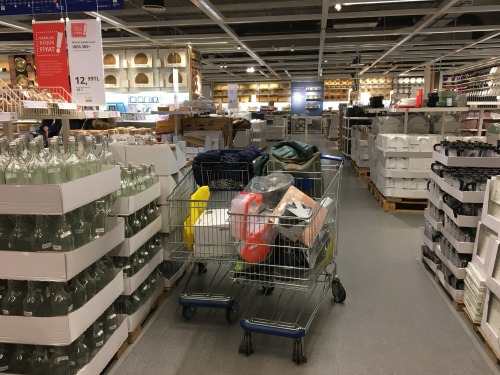
When you are living at ANAMED as a post-doctoral fellow, and when finally finding and ordering three packs of active dry yeast at midnight—after hours of frantically searching for it on multiple online apps—becomes your biggest accomplishment, it means something somewhere went terribly wrong.
Two weeks before the spread of the news of the pandemic, I was working to secure funding for my workshop, “Mapping the Field: What’s New and What’s Ahead in Ottoman and Turkish Women’s, Gender, and Sexuality Studies,” proposed to be held at ANAMED in October 2020. I drafted the program and prepared a budget. Two weeks later, I got the budget—not for the conference, but for the kitchen, where we cooked our way to the good life under quarantine. After eleven hours of shopping together with Jeff and Ibrahim, our kitchen now had a new set of knives, a food processor, a mortar and pestle, a cast iron skillet, and a Dutch oven. Time and money well spent.
Then, we started to cook.
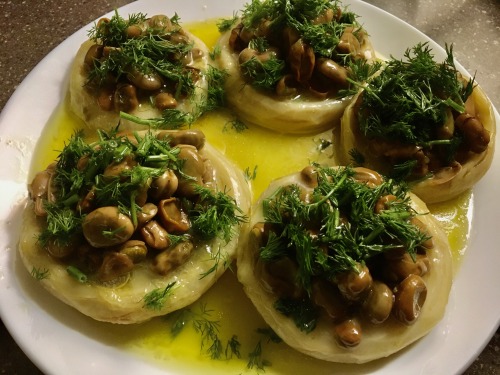
With our regular routines and habits altered and disrupted, cooking restored some degree of normality to our lives. Outside, things were similar. Gradually, Google searches pertaining to bread and baking saw an enormous rise in and out of Turkey, flour and yeast ran out in markets, and news carried yeast to their headlines: “It’s not just toilet paper! This tiny grocery item is nearly impossible to find right now!”
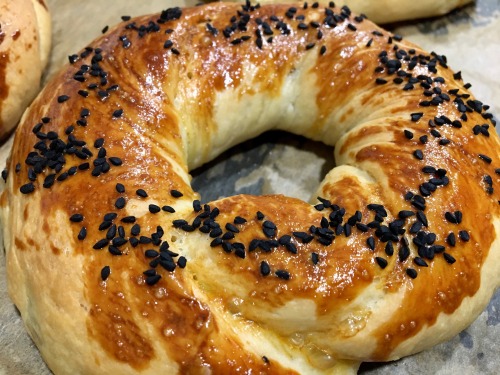
And it wasn’t just bread! I started receiving e-mails from friends in academia for cooking initiatives, such as the “Quarantine Cooking Recipe Exchange,” to share recipes with scholars worldwide. Others formed a feminist collective, tasked with gathering food memories and recipes. Known as “Historians Cooking the Past in the time of COVID-19,”[1] the collective called oral and public historians to share a food memory and a recipe that reflects on this pandemic.
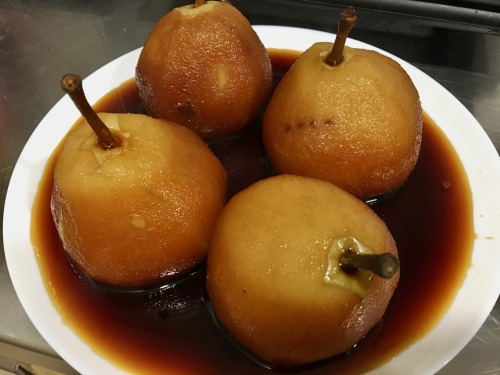
During these past seventy-three days in which we have sheltered in ANAMED, cooking gave us a sense of security, a sense of belonging. It recovered whatever we lost, in the most unexpected ways. We kneaded the dough after we received each rejection, we stuffed dolma when our lives felt emptied out, we baked a carrot cake because it smelled like home. Through the dough, the dolma, and the cake, through the kneading, the stuffing, and the baking, we connected…
I thought a lot about this when I read the following in The New Yorker the other day: “Epidemics are, by their very nature, divisive. The neighbor you might, in better times, turn to for help becomes a possible source of infection. The rituals of daily life become opportunities for transmission; the authorities enforcing quarantine become agents of oppression.”[2] Yes, with bitterness, we realized that epidemics and pandemics are divisive, and yes, they do unearth our anxieties, insecurities, deep-rooted social prejudices. But shopping for ingredients as far away as from Antep, teaching each other how to cook, tasting new dishes for the first time, sharing the recipes among each other as well as with the staff, brought us together in what would otherwise have been an isolated, divisive experience.
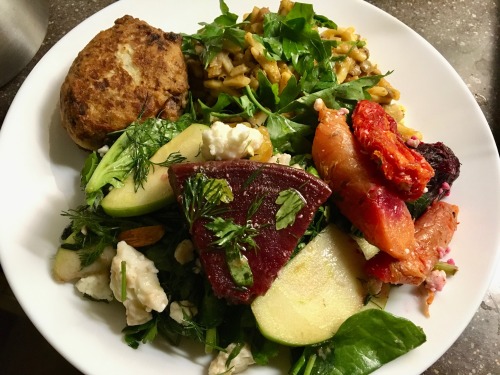
Otherwise, we kept busy in a scattered way, working on job applications while knowing the flights were cancelled, revising articles while knowing the archives were closed, talking to family and friends 10,000 km away, hoping that we will all be able to enjoy each other’s company in person again.
And we do hope to be back together again…over a slow-roasted lamb—okay, veggies for Milan’cım—if at all possible, once this is all over.
—Gülşah Torunoğlu, Post-Doctoral Fellow, 26 May 2020
———————————————————————————–
[1] https://sites.google.com/view/cookingthepast/home?authuser=0
[2] Elizabeth Kolbert, “Pandemics and the Shape of Human History,”
The New Yorker (March 30, 2020).
https://www.newyorker.com/magazine/2020/04/06/pandemics-and-the-shape-of-human-history

